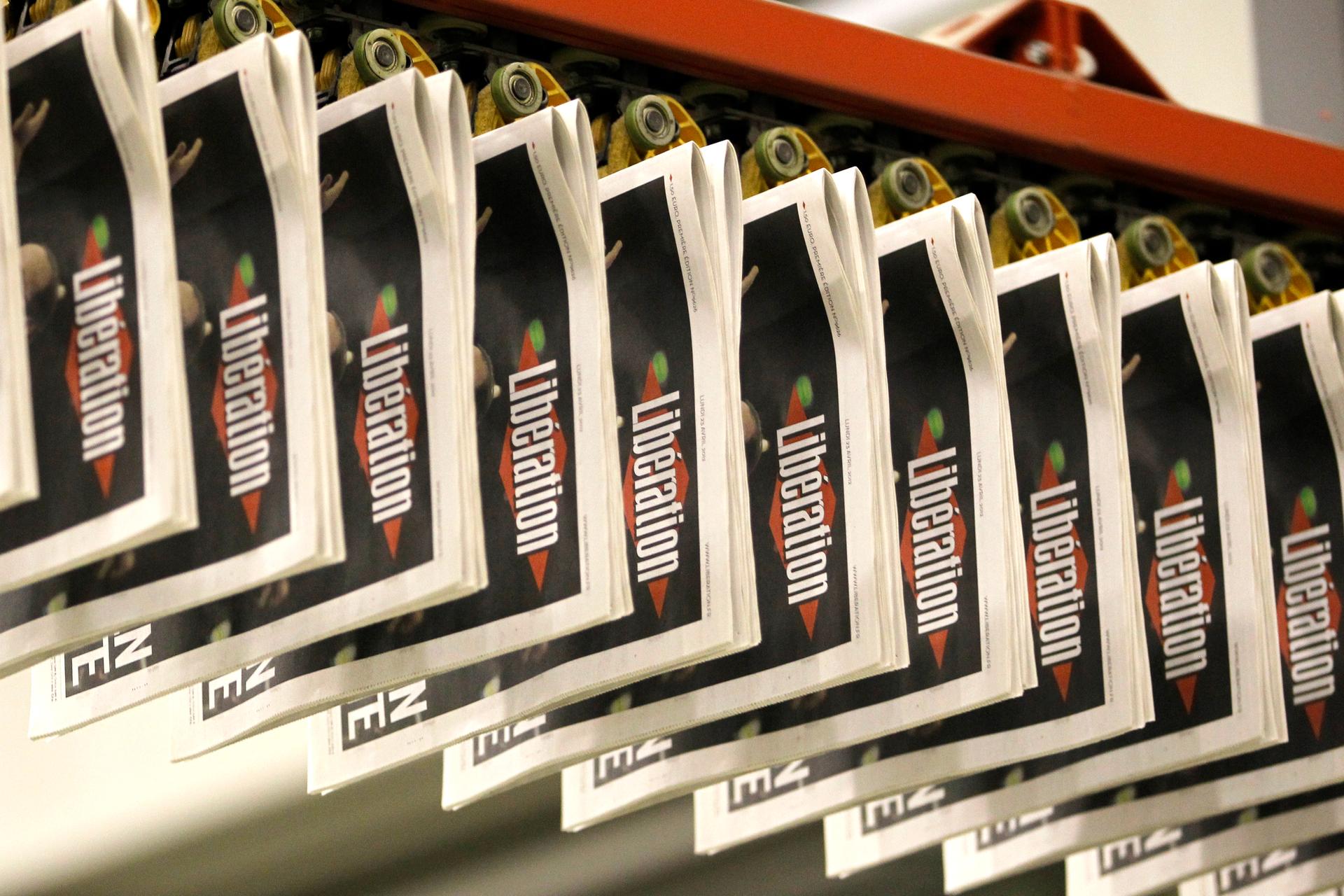In Paris, the shareholders aim to turn a storied newsroom into a restaurant
Copies of the French daily newspaper Liberation are seen at their printing plant in La Courneuve, near Paris, in April 2012.
Shareholders of the French newspaper Liberation want to move the journalists out of the newsroom in the center for Paris and start a luxury restaurant in its place.
But the journalists aren't ready to go so quietly. "We are a newspaper, not a restaurant," was written on the cover of this past weekend's edition of the paper. The company's shareholders want to relocate the staff from the heart of Paris to the suburbs.
Pierre Haski worked for Liberation for 26 years. In 2007, he and a group of colleagues proposed a new plan for Liberation. They wanted to start an online component for the paper.
He says when that proposal was rejected, he decided to leave and start his own news website called Rue89.
"We felt that's where the battle for the news will be fought: online," he says.
Today, there are three main shareholders at Liberation. Businessman Edouard de Rothschild, real estate developer Bruno Ledoux and the Italian wealth management group Ersel.
Many newspapers worldwide are struggling to stay afloat. Haski says it's fine that newspapers try and find ways to make money. "Today, there is this idea that news is not making money any more, and you have to find the money elsewhere," he says.
In fact, Rue89 just held a wine fair. The right-wing newspaper Le Figaro has organized cruises with journalists as speakers.
But what he finds surprising is that the shareholders at Liberation consider measures such as starting the restaurant as "the only focus."
"If you're using that money to make the newspaper better or invest in new ways of presenting the news — that's one thing," he says. "But their plan is mainly focusing on the brand and making money with the brand outside journalism."
The problem is, he says, shareholders are coming from a different world. The journalists at Liberation have voiced the same concern. They say the shareholders are only making money from the brand and not helping the journalism. They staged a 24-hour strike last Thursday when they learned about the new plans.
Liberation is France's third-largest national newspaper, but, in recent years, it has lost readership to bigger names such as Le Figaro and Le Monde. Liberation's beginnings go back to the 1970s, when Jean-Paul Sartre, the well-known philosopher, started the left-wing paper.
Haski says the case has attracted a lot of attention in France because of the special place the paper has in the nation's history.
"The case of Liberation is very sad because both sides are getting it wrong," he says. "On one side, you have journalists who have failed to adapt to the digital challenge and, on the other, you have shareholders who are completely outside of the world of journalism."
